Basic health care for people
A few days ago, Mr. CVL (38 years old, living in Ben Tre province) was transferred from the lower level to Cho Ray Hospital in a state of acute kidney failure with complications, and was prescribed dialysis. Mr. L.'s wife said that the couple were self-employed so they did not buy health insurance, the family's circumstances were difficult, and their two children were at school age.
“My husband is seriously ill and has to use expensive medicine and specialized techniques, so the hospital fees are very high. No one wants to have an illness, and if you get it, you can easily become bankrupt. The government now has a policy of exempting hospital fees for the people. I think that is very good, showing the great humanity of our country,” Mr. L.’s wife expressed.
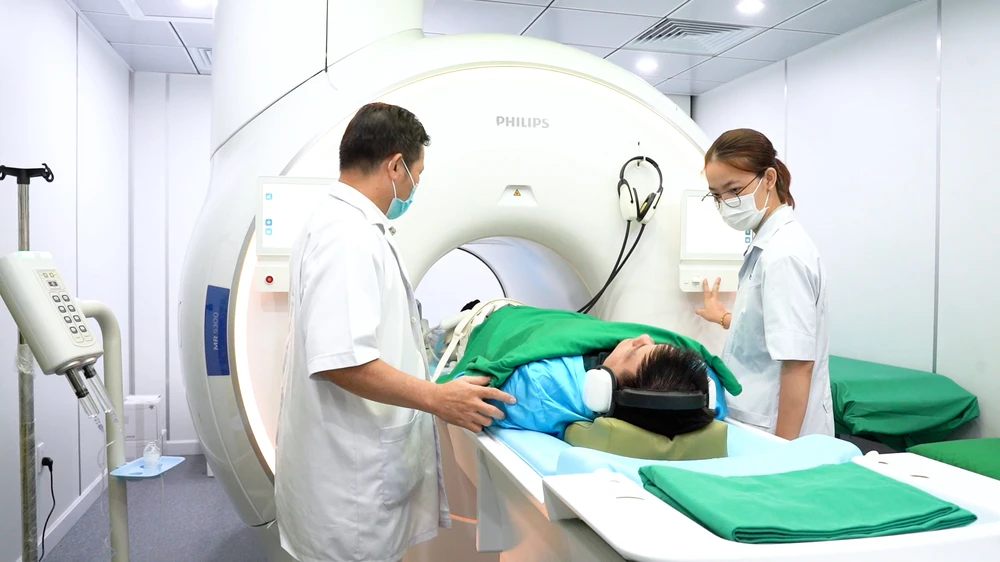
Similarly, Ms. Nguyen Thi Ha (65 years old, living in Ha Nam province) said that she had coronary artery occlusion and was transferred to Bach Mai Hospital for treatment by a lower-level hospital. She has a health insurance card, but not all medical expenses are covered by health insurance. The cost of additional medicine also costs tens of millions of VND, not to mention the cost of travel, food, and living expenses during her hospital stay. With the new policy, she hopes that the cost of medical examination and treatment will be reduced somewhat.
According to Associate Professor, Doctor, Doctor Dao Xuan Co, Director of Bach Mai Hospital, the hospital is a special end-line medical unit and specializes in treating serious cases, so every day, the number of patients coming for examination and treatment is very large, sometimes up to 10,000 people/day.
Among these, there are many patients in remote areas, poor people, so the cost of treatment and living expenses for patients is a big burden. Therefore, the policy of periodic health check-ups for people at least once a year and moving towards free hospital fees for all people is very correct.
However, to achieve free hospitalisation and universal health care, we must first invest in primary health care and do a good job of primary health care. In addition, we need to plan a network of large, specialized health facilities, with special attention paid to training and improving the quality of human resources.
In this phase, we are rearranging administrative units, moving towards not organizing at the district level. This is an opportunity for us to focus resources and reorganize the grassroots health system to be closest to the people, Dr. Dao Xuan Co shared.
Piloting some policies
Implementing the direction of the General Secretary, the Ministry of Health is developing a draft to report to the Government to submit to the Politburo for promulgation of a resolution on breakthroughs in public health care, meeting the requirements of national development in the new era; in which many solutions are proposed for public health care, moving towards free hospital fees for all people.
At the same time, the Ministry of Health is developing to issue circulars stipulating the list, rates, levels and conditions of payment for medical technical services, drugs and medical equipment within the scope of benefits of health insurance participants; including regulations to increase the rates and levels of payment for some drugs and medical equipment in the direction of free of charge for some subjects, especially policy subjects.
Regarding the implementation roadmap, from 2026-2030, the Ministry of Health will research and submit to the Government a decree guiding the pilot implementation of a number of policies, such as: expanding the benefits of the basic health service package to 20%-30% of the basic salary (currently 15%), at the same time, the Ministry of Health will propose comprehensive amendments to the Law on Health Insurance.
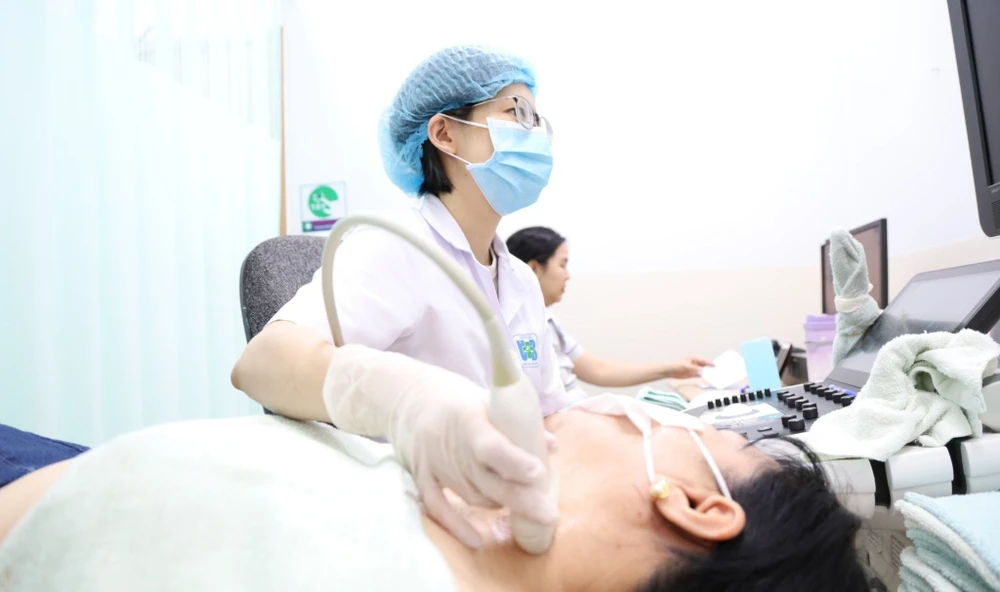
According to health experts, to achieve the goal of free hospitalisation for all people, we must rely on resources: Health Insurance Fund, state budget, and socialisation. Along with these resources, it is necessary to continue to accelerate the implementation of the goal of universal health insurance. Along with that, there must be a mechanism to strictly manage medical examination and treatment activities, practice thrift, and combat waste in the use of the Health Insurance Fund. The Ministry of Health also needs to soon issue a basic health care package, which is an essential service to take care of people's health according to the provisions of the Health Insurance Law, which has not yet been available.
According to statistics from the Vietnam Social Security (VSS), up to now, over 94% of the population nationwide participates in health insurance and 95% of health insurance beds are in public hospitals. The VSS has also signed contracts to organize a public and non-public health care system, about 13,000 health care facilities so that people can access health services.
Mr. Nguyen Duc Hoa, Deputy Director of Vietnam Social Security, said that the health insurance payment level and the list of drugs, medical supplies, and technical services covered by the health insurance fund are increasingly expanding, many expensive drugs and modern replacement supplies to treat serious diseases are also included in the health insurance payment list...
“The General Secretary mentioned the roadmap, from now until 2030, we will implement free hospital fees. In fact, we are on the right track, on the right roadmap, which is to move towards universal health insurance. Health insurance is one of the main pillars in the social security system. The policy of free hospital fees and everyone having a health insurance card to access, participate in, and enjoy medical examination and treatment services demonstrates the concern of the Party and State towards fairness in people's health care,” commented Mr. Nguyen Duc Hoa.
Associate Professor, Doctor, Doctor DO VAN DUNG - former Head of Faculty of Public Health, University of Medicine and Pharmacy, Ho Chi Minh City:
Step by step development
Free hospitalisation for all people is a very progressive and humane policy, and at the same time has important significance in the socio-economic development of the country, not only bringing equality and happiness to the people but also helping Vietnam become a developed country in terms of socio-economics. However, free hospitalisation for all people is a goal that takes a long time to implement, depending on stable and sustainable socio-economic development.
Right now, we can and should start by exempting or reducing hospital fees for those in particularly difficult circumstances. If we cannot exempt hospital fees for all people, we should first exempt and remove co-payment requirements for the poor and those in particularly difficult circumstances through support for purchasing health insurance and using the budget to pay the rest.
Mr. NGUYEN KHAC PHUONG - Ni Su Huynh Lien street, ward 10, Tan Binh district, HCMC:
Expectation and hope
Free hospital fees will eliminate financial burdens, helping everyone access basic health services without hesitation. That is also the reason why many people are eagerly waiting and expecting this humane policy.
This is a landmark decision to enhance social welfare, opening up many healthcare opportunities for all classes of people; at the same time, it is a testament to the strong change in the country's governance mindset, in which people are placed at the center.
Source: https://www.sggp.org.vn/mien-vien-phi-toan-dan-hien-thuc-hoa-chinh-sach-an-sinh-post794971.html



![[Photo] Prime Minister Pham Minh Chinh receives Swedish Minister of International Development Cooperation and Foreign Trade](https://vphoto.vietnam.vn/thumb/1200x675/vietnam/resource/IMAGE/2025/5/12/ae50d0bb57584fd1bbe1cd77d9ad6d97)


![[Photo] Prime Minister Pham Minh Chinh works with the Standing Committee of Thai Binh Provincial Party Committee](https://vphoto.vietnam.vn/thumb/1200x675/vietnam/resource/IMAGE/2025/5/12/f514ab990c544e05a446f77bba59c7d1)





![[Video] New treatment regimen helps pregnant women with cancer give birth safely](https://vphoto.vietnam.vn/thumb/402x226/vietnam/resource/IMAGE/2025/5/13/e2d843bd206e435bb530f4f75e1903bb)
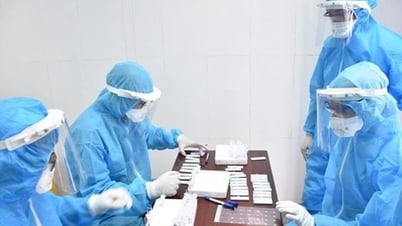






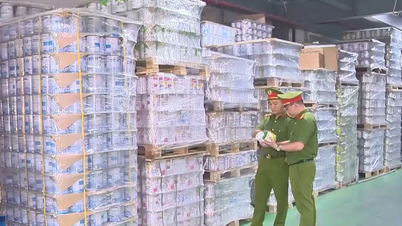
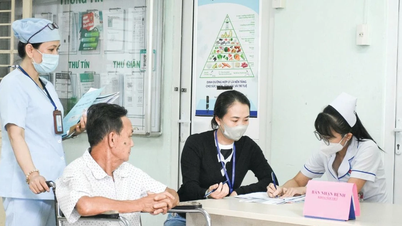



































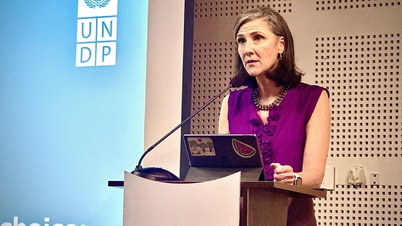

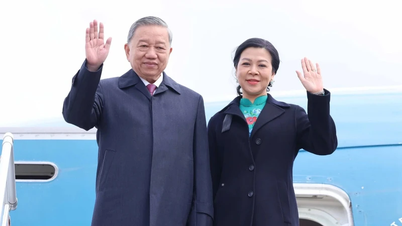
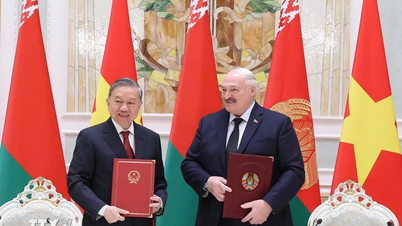

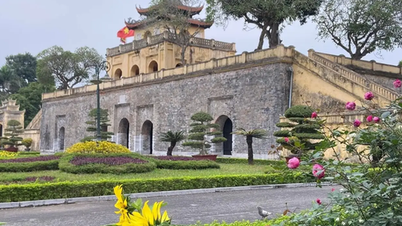





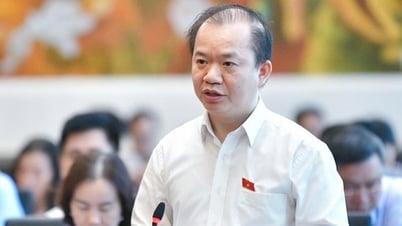










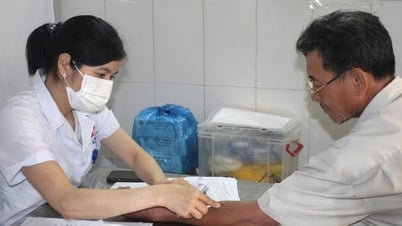













Comment (0)